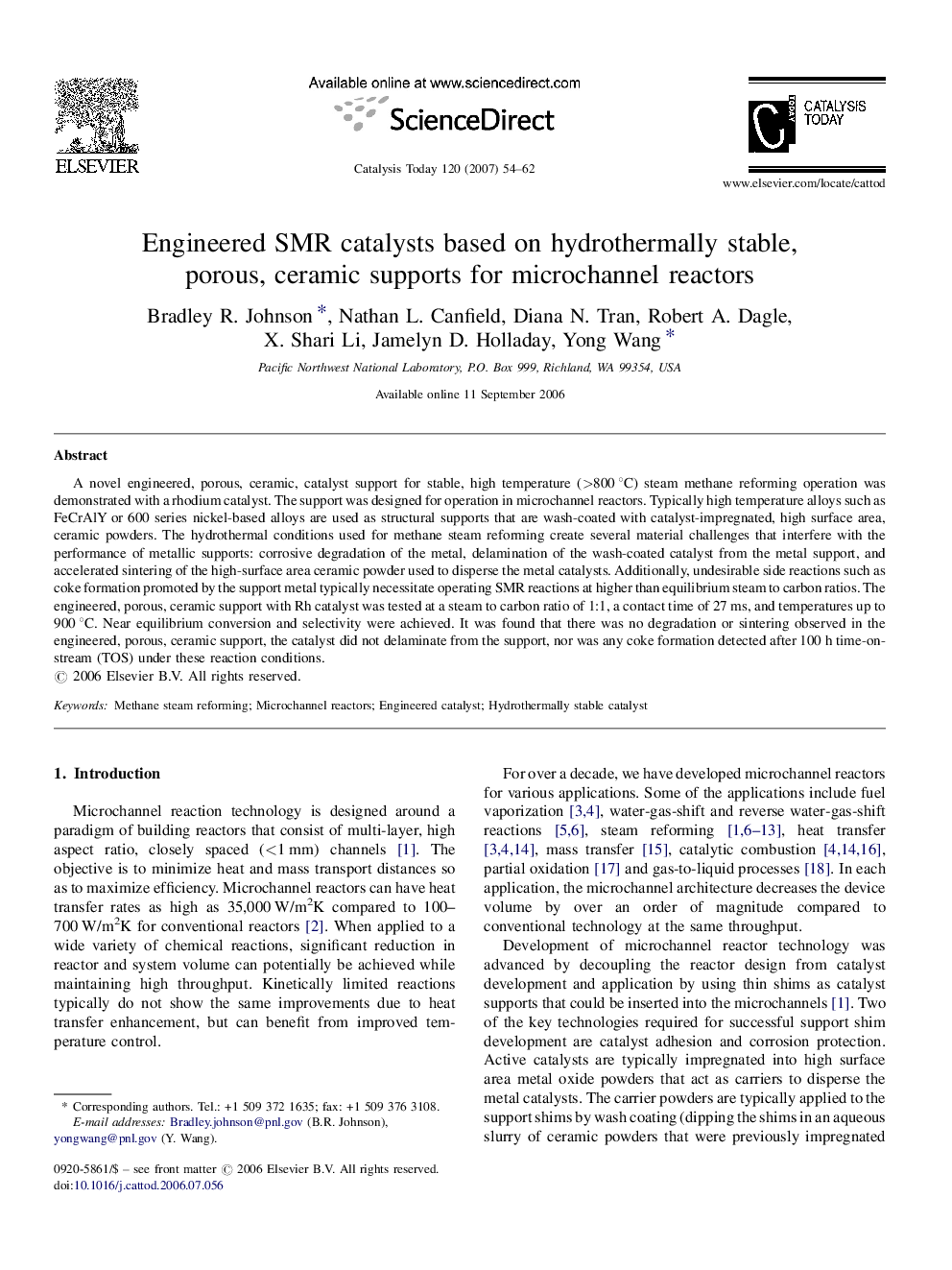| Article ID | Journal | Published Year | Pages | File Type |
|---|---|---|---|---|
| 57774 | Catalysis Today | 2007 | 9 Pages |
A novel engineered, porous, ceramic, catalyst support for stable, high temperature (>800 °C) steam methane reforming operation was demonstrated with a rhodium catalyst. The support was designed for operation in microchannel reactors. Typically high temperature alloys such as FeCrAlY or 600 series nickel-based alloys are used as structural supports that are wash-coated with catalyst-impregnated, high surface area, ceramic powders. The hydrothermal conditions used for methane steam reforming create several material challenges that interfere with the performance of metallic supports: corrosive degradation of the metal, delamination of the wash-coated catalyst from the metal support, and accelerated sintering of the high-surface area ceramic powder used to disperse the metal catalysts. Additionally, undesirable side reactions such as coke formation promoted by the support metal typically necessitate operating SMR reactions at higher than equilibrium steam to carbon ratios. The engineered, porous, ceramic support with Rh catalyst was tested at a steam to carbon ratio of 1:1, a contact time of 27 ms, and temperatures up to 900 °C. Near equilibrium conversion and selectivity were achieved. It was found that there was no degradation or sintering observed in the engineered, porous, ceramic support, the catalyst did not delaminate from the support, nor was any coke formation detected after 100 h time-on-stream (TOS) under these reaction conditions.
